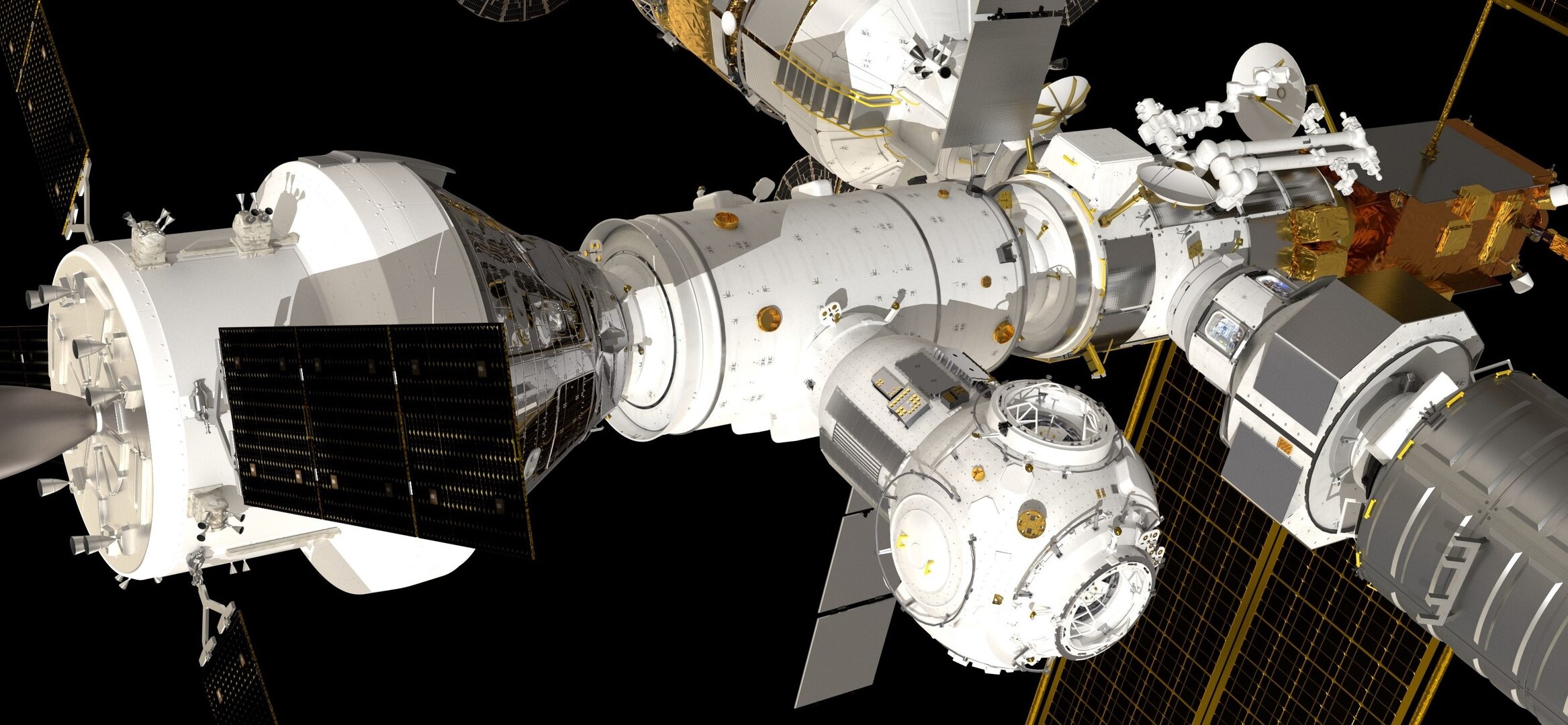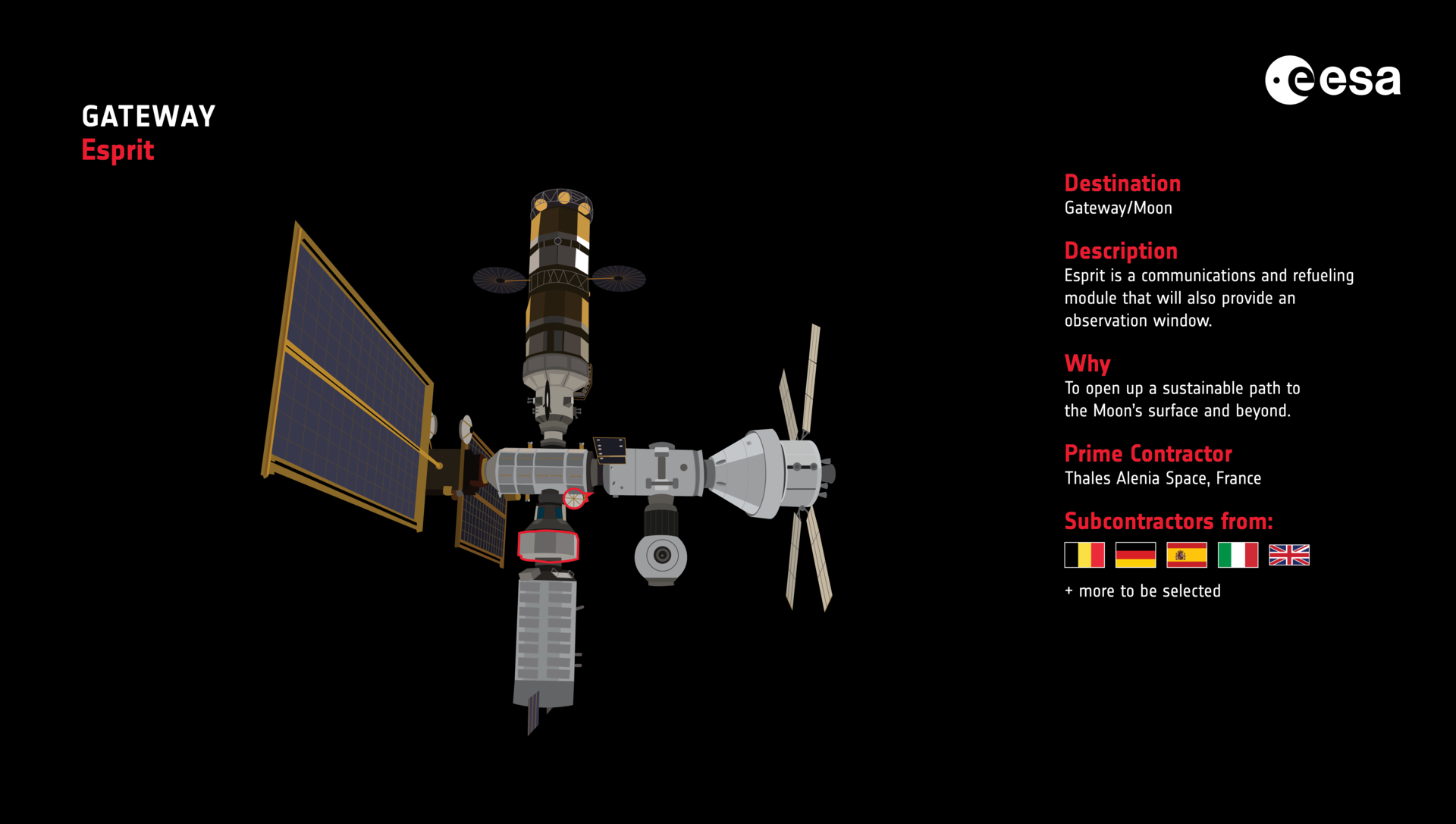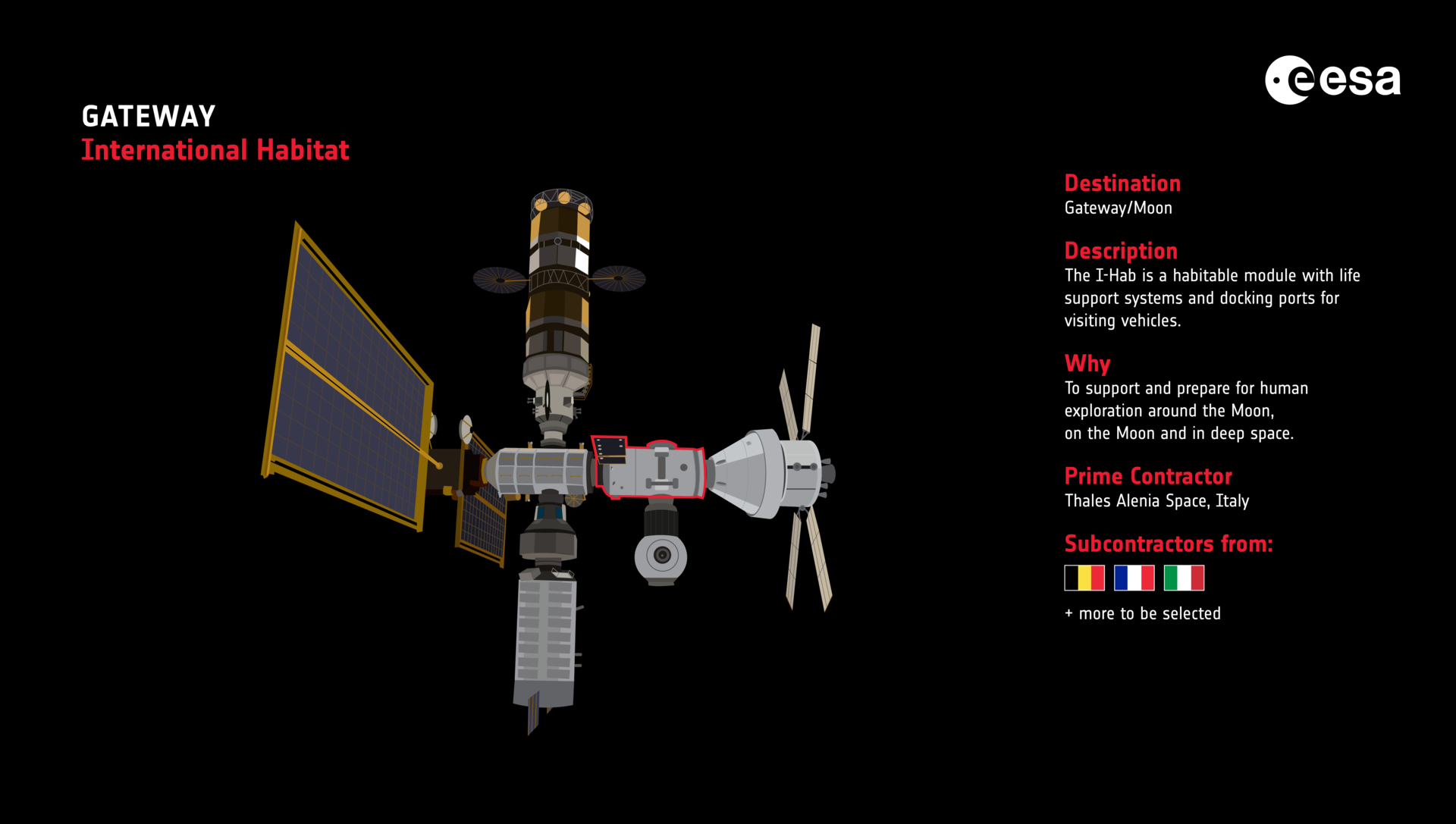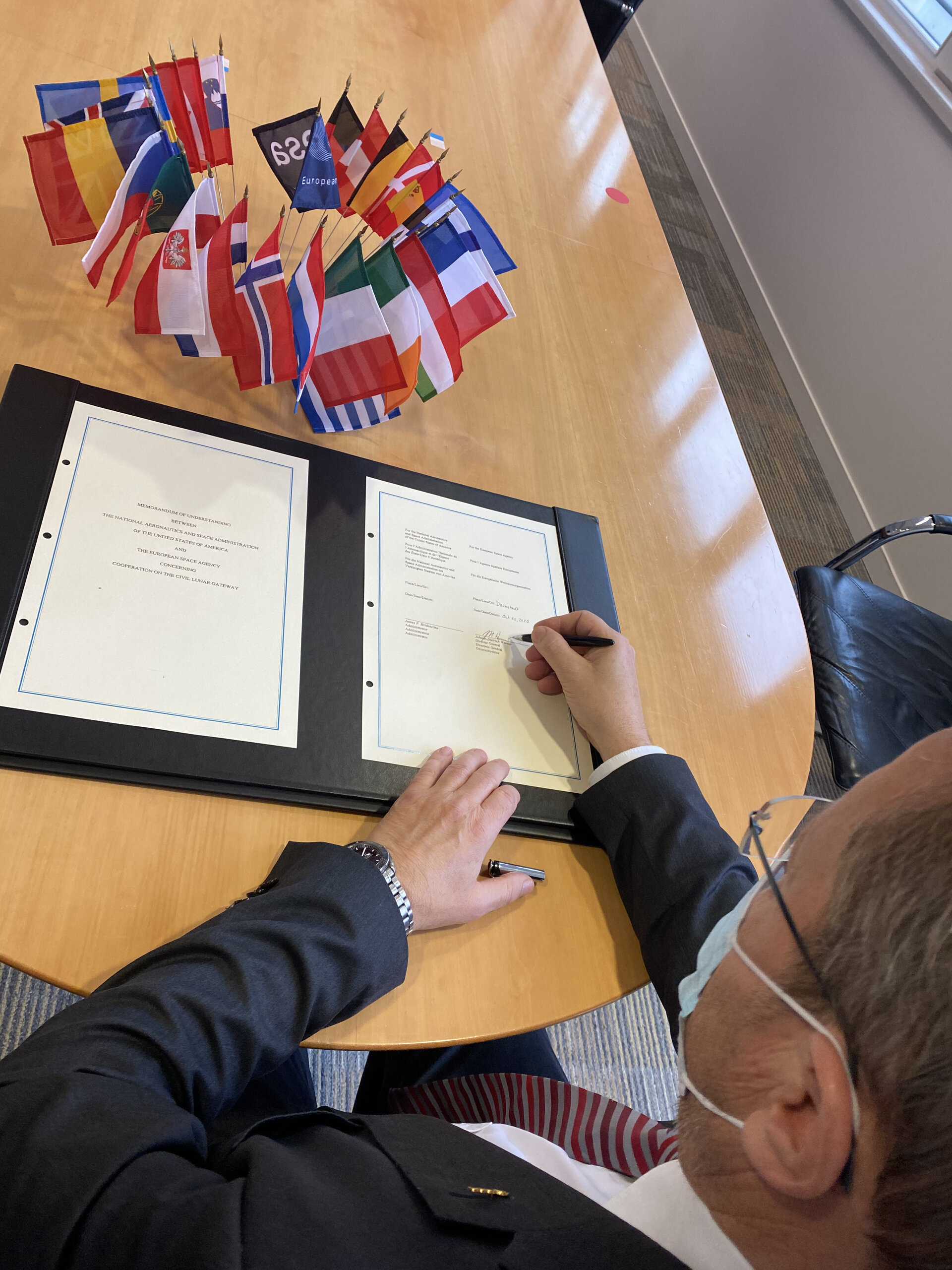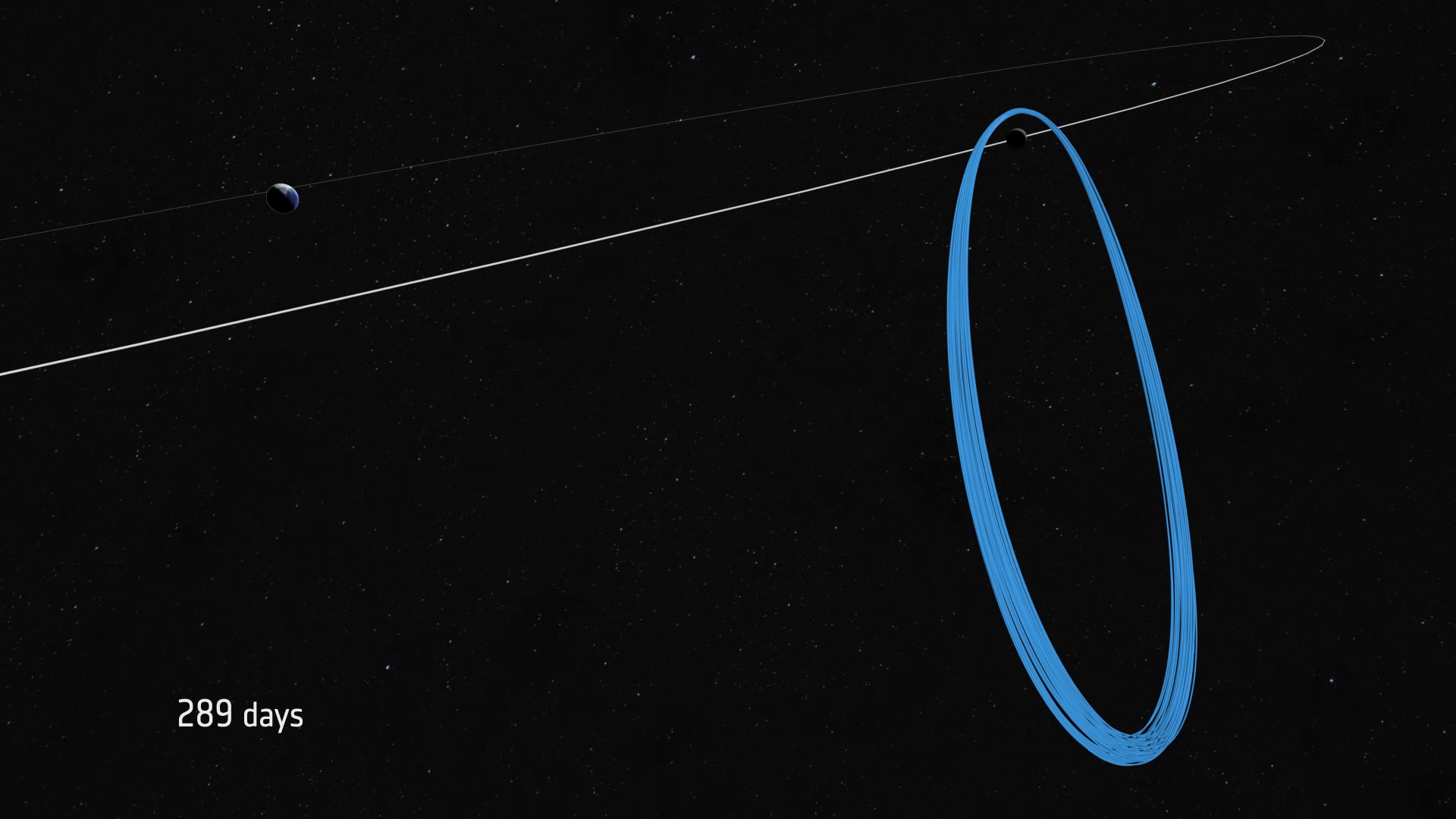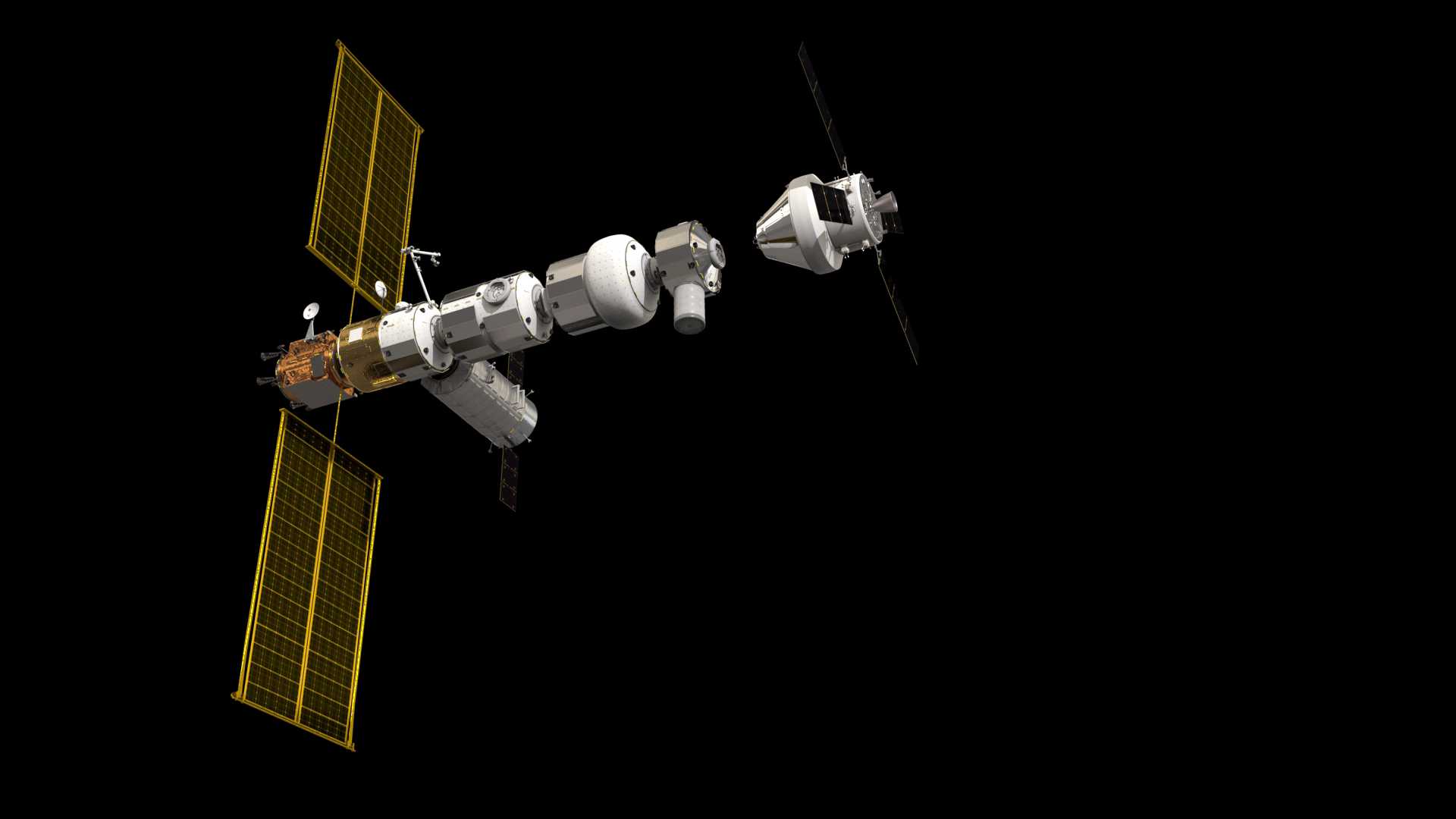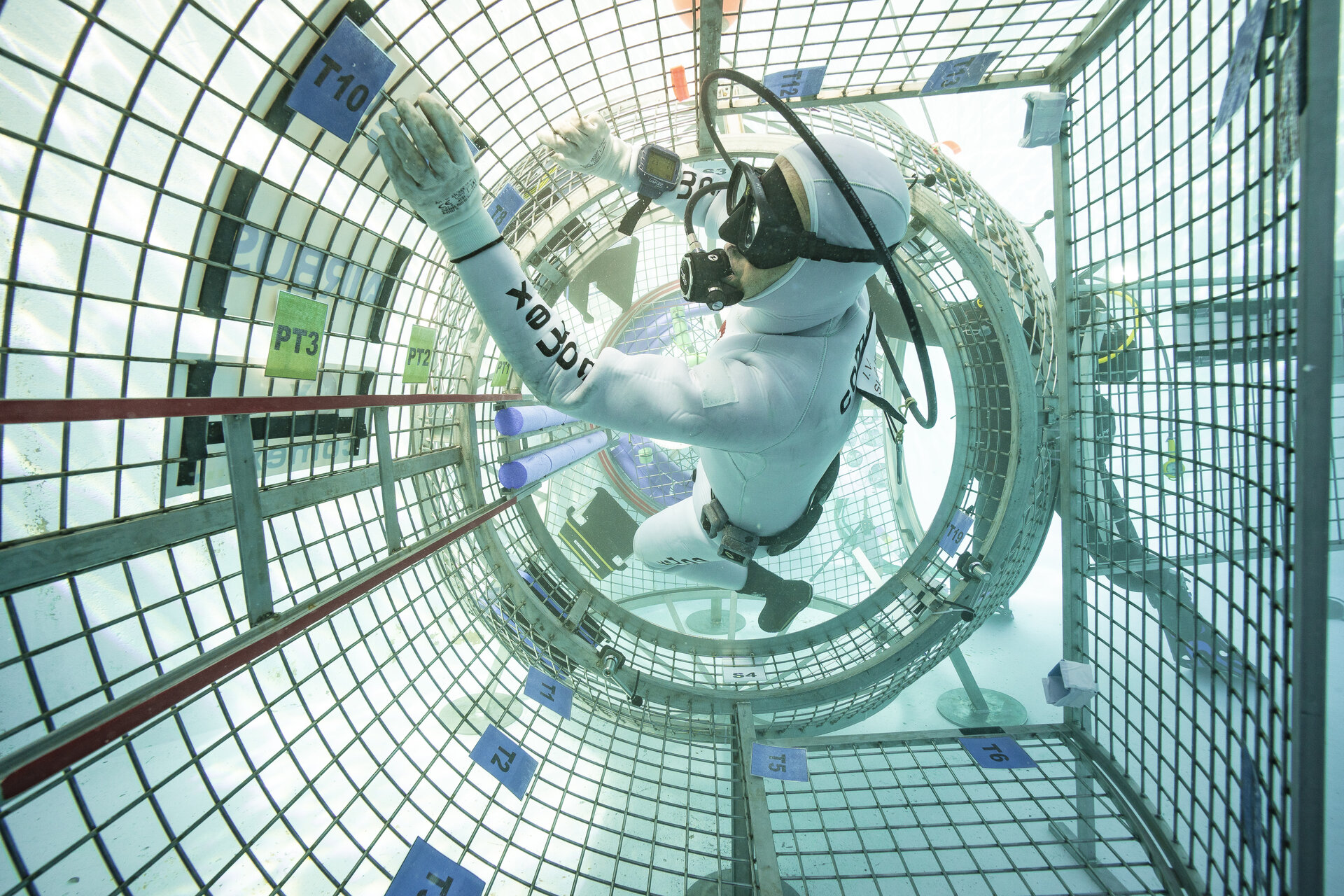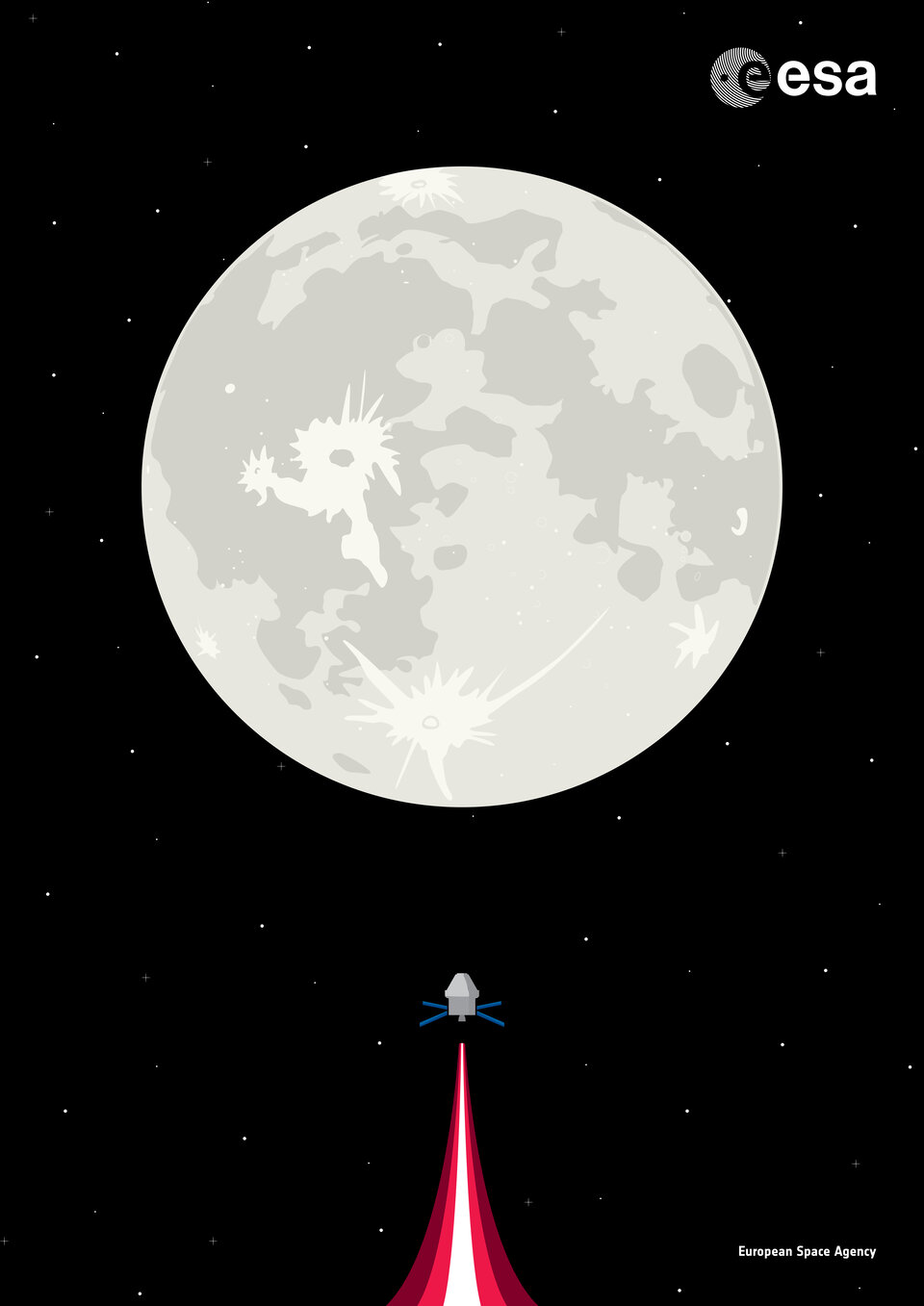Positive signs for Europe as ESA goes forward to the Moon
ESA Director General Jan Wörner and NASA Administrator Jim Bridenstine have signed a Memorandum of Understanding (MoU) to take Europe to the Moon.

The historic agreement will see ESA Member States contribute a number of essential elements to the first human outpost in lunar orbit, known as the Gateway.
It confirms ESA’s commitment to delivering at least two European Service Modules that provide electricity, water, oxygen and nitrogen to NASA’s Orion spacecraft – with more to come. ESA will also receive three flight opportunities for European astronauts to travel to and work on the Gateway.

The Gateway will enable sustainable exploration around – and on – the Moon, while enabling research and demonstrating the technologies and processes necessary to conduct a future mission to Mars. ESA’s contribution to this international endeavour under the MoU includes building the main habitat for astronauts when they visit the Gateway, known as I-Hab.
A second contribution called ESPRIT, will supply enhanced communications, refuelling capability and a window, similar to the European-built Cupola observatory on the International Space Station. This is consistent with what was approved by Member States at ESA’s Space19+ Ministerial Council, in Seville, Spain, last year.
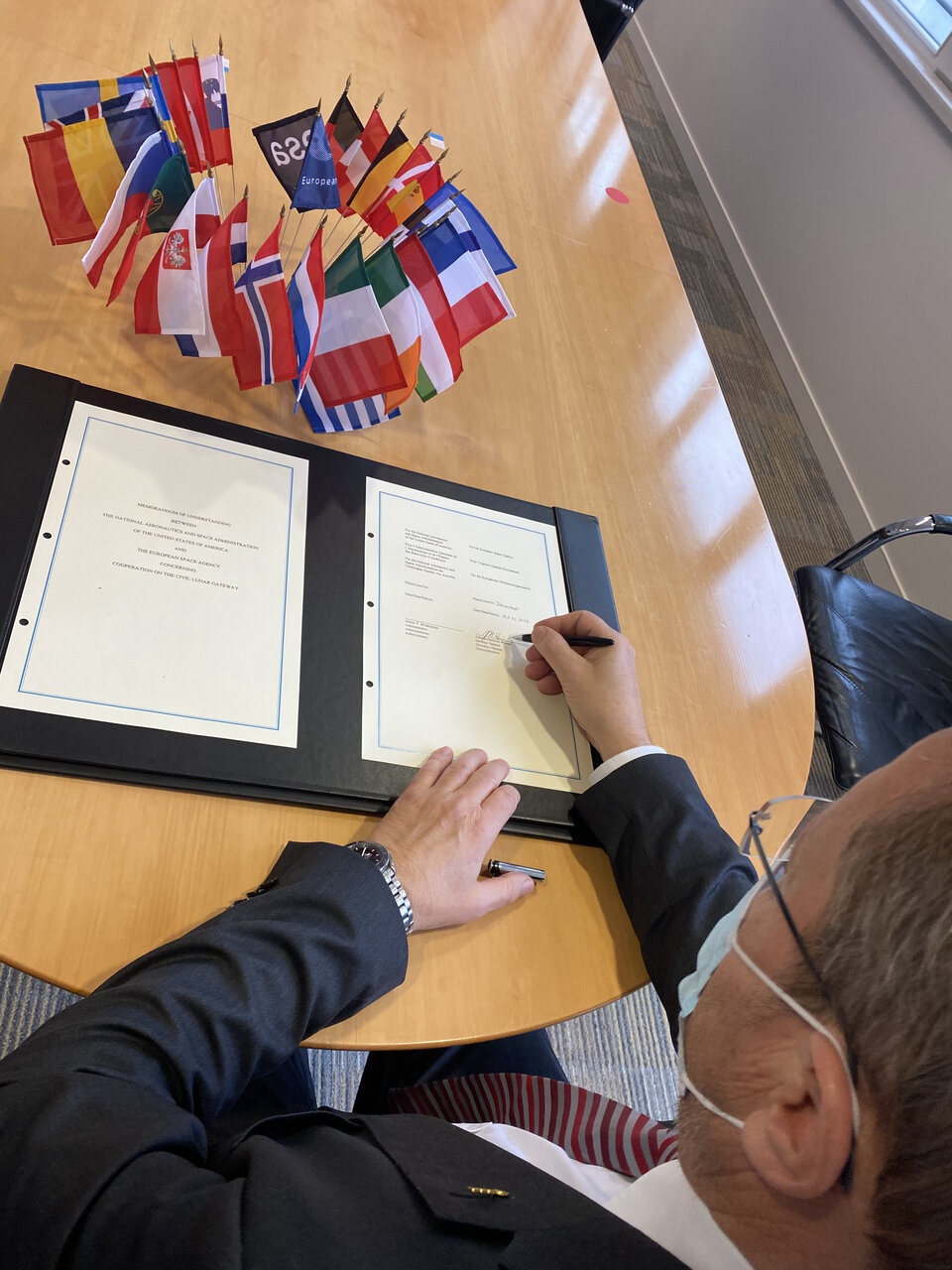
Though the MoU was signed remotely because of COVID-19 restrictions, ESA Director General Jan Wörner says ESA’s involvement with NASA’s Artemis programme has been many years in the making.
“Throughout 20 years of continuous human presence on the International Space Station, we have seen an unparalleled level of cooperation between nations. Sustainable space exploration requires coordinated, international efforts and Europe has proven itself a strong and reliable partner,” he explains.
“This MoU marks a critical point in Europe’s trajectory: it confirms we are going forward to the Moon, not just in terms of equipment and technology, but also with our people. Europe will play a central role in the new era of global space exploration along with NASA and our partners, delivering exemplary, game-changing architectures to explore the Moon and Mars and inspiring generations to come.”

This sentiment is echoed by ESA Director of Human and Robotic Exploration David Parker. “ESA is honoured to be a strong partner of NASA for Artemis, extending the Space Station partnership forward to the Moon,” he says.
“Every launch of astronauts to the Moon aboard the new Orion spaceship will rely on the European Service Module for power, propulsion, oxygen and water. Europe will provide crew accommodation, telecommunications, refuelling and an amazing view of the Moon thanks to the ESA contributions to the lunar Gateway. And what is more, European astronauts will fly to the Gateway to live and work in deep space for the first time.
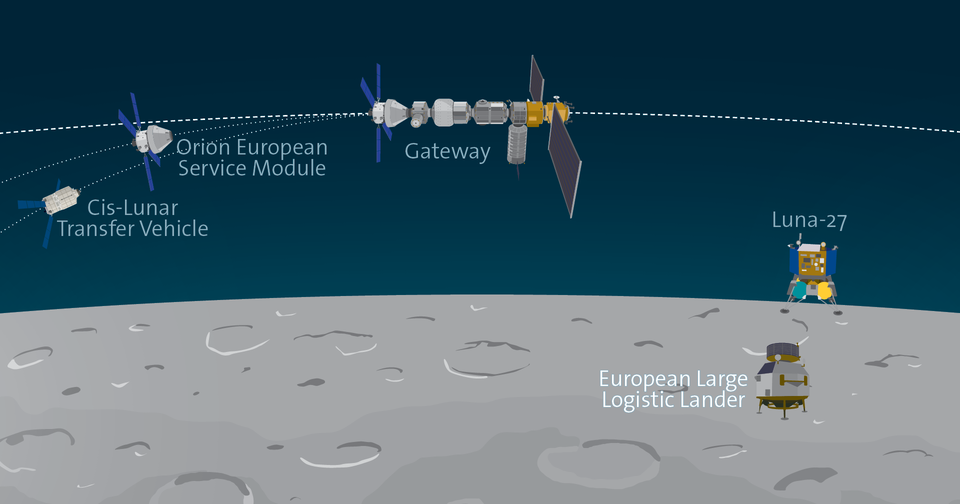
This landmark signature was underlined by Marco Ferrazzani, Head of ESA Legal Services and the Agency’s lead negotiator for this MoU.
“This signature establishes the agreement between NASA and ESA of a genuine partnership for cooperation on a civil human outpost in the lunar vicinity, building on the wealth of experience gained through long cooperation together. For our future role in exploration it will have the same magnitude as the MoU for the International Space Station.
“The negotiation was supported by the tireless work of ESA Member States who, as with the International Space Station, collectively resolved to form a single European partner allowing for the start of this European endeavour in lunar exploration.”
Find out more about ESA’s European vision for exploration over the next 10 years.


